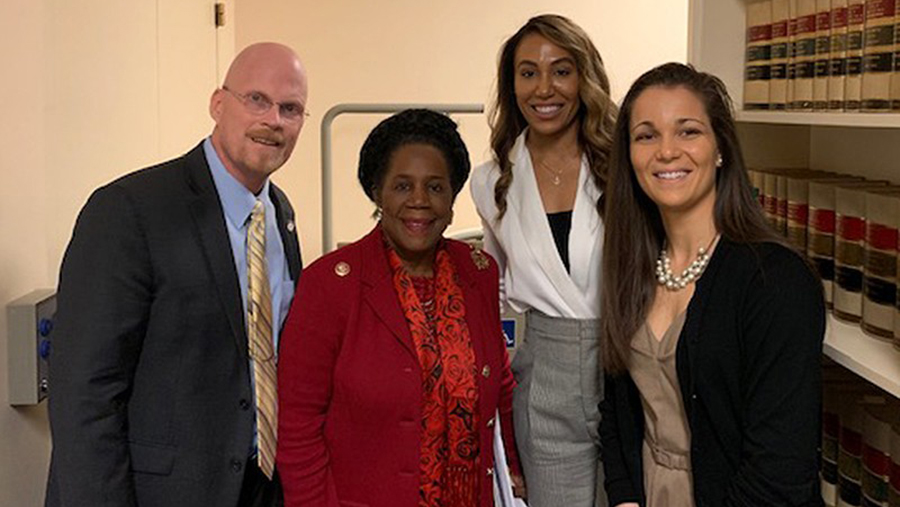This piece was submitted from a member of our enthusiastic community of readers. If you’re interested in sharing your opinion on any cultural, political or personal topic, check out our how-to post to learn more.
Every year in April hundreds of Certified Registered Nurse Anesthetists (CRNAs) travel to Washington, D.C. to participate in the American Association of Nurse Anesthetists (AANA) Mid-Year Assembly. This annual meeting is the nation’s largest nurse anesthesia advocacy conference. During this event, CRNAs meet with their elected officials in Washington, D.C. to discuss pertinent issues surrounding nurse anesthesia practice and healthcare delivery. This year I had the pleasure to meet with Congresswoman Shelia Jackson Lee who represents District 18 in Houston, Texas. Among the issues discussed were the Title VIII Nursing Workforce and Development Program and Veterans access to anesthesia services.
Title VIII Nursing Workforce Development Program is a federally funded program that supports advanced nursing practice educational programs. Nurse anesthesia programs are among those funded through Title VIII. Currently, House Bill H.R. 728 proposes reauthorizing this funding, which Congresswoman Jackson Lee plans to vote in favor of per her staff.
As a graduate of a program who received Title VIII funding, I am extremely grateful for the Congresswoman’s support. Houston has two CRNA programs at The University of Texas Health Science Center School of Nursing and at Baylor College of Medicine. These two schools will be able to educate hundreds of CRNAs who will join the healthcare workforce and increase access to anesthesia services for millions of Americans, thanks to the funding assistance from Title VIII.
CRNAs provide the majority (over 96%) of anesthesia services to rural and medically underserved Americans (AANA, 2019). Likewise, CRNAs provide the majority of anesthesia care to the U.S. Armed Forces at home, at sea and abroad, and to our veterans (AANA, 2019). Houston is home to the Michael E. DeBakey Veterans Affairs (VA) Medical Center, a large academic institution that serves more than 151, 000 veterans in Southeast Texas (U.S. Department of Veterans Affairs, 2018). In order to ensure access to anesthesia services, CRNAs must be able to practice to the full extent of their license, which is why I asked for the Congresswoman’s support on full practice authority for CRNAs within the VA system. Veterans deserve access to high quality anesthesia care, and with full practice authority for CRNAs within the VA system, veterans will have access to high quality anesthesia care.
As a constituent of Congresswoman Jackson Lee, I am extremely grateful for her time and attention during our April meeting.
